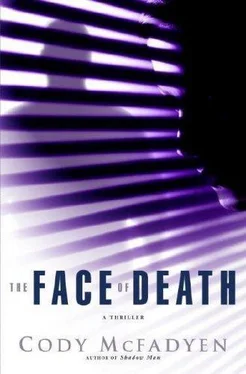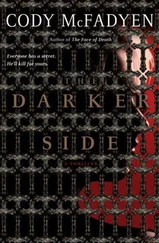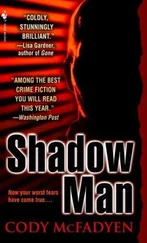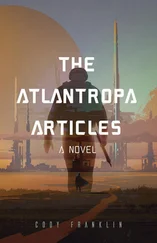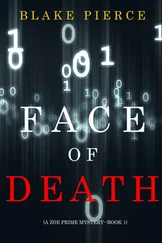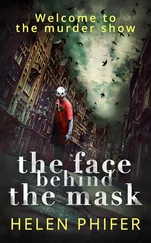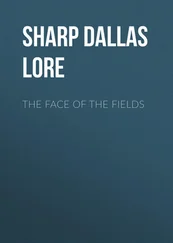"Maybe a little," I admit.
She smiles. "Well, this is just who I am. I'm a California girl, always have been, always will be. I like my hair blond, I like two-piece bikinis, and I love the smell of the ocean." She shimmies in her chair. "And I love to dance!" Another multi-kilowatt smile. "I have what they called on my psych eval 'an overdeveloped ability to assign certain human beings to the category of other .' The average person isn't built to kill, you see. It's not a part of the makeup. But we have to kill, all the time. Soldiers have to. SWAT snipers have to." She nods once, toward me.
"You have to. So what to do, what to do, problems, problems. The answer is: We decide that they are other . They aren't like us, maybe they aren't really human, whatever. Once that's done--and this is something the psychological and military communities have known for a long time--they're a lot easier to kill, let me tell you." Another perky smile, but this time she doesn't let it reach her eyes. I think she's doing this on purpose, to show me the killer she keeps inside. "I'm not a psycho. I don't get all jolly about blowing people away, I'm not into all that 'guts to grease the treads of our tanks' stuff." She laughs as though this idea is the silliest thing ever, ho ho ho . "Nope, it's just really easy for me to decide who the enemy is, and hey, once that's done, they're not a member of my club anymore, you know?"
"Yes," I reply. "I do."
"Coolness." The Kirby-train rushes on. She talks in waves, in a way that makes it impossible to get a word in without interrupting her.
"Now, as far as the resume goes, I have a degree in abnormal psych, and I speak fluent Spanish. I was in the CIA for five years, and the NSA for six. I spent a lot of time in Central and South America doing, ummmmm, odd jobs." Another conspiratorial wink, which gives me a little bit of a chill. "Got bored and quit--and gosh, was that hard. I could tell you some stories. Those intel agency guys really take themselves seriously. They didn't want to let me go." She smiles and again it doesn't quite bleed into her eyes. "I convinced 'em."
Alan raises a single eyebrow, but says nothing.
"So--where was I? Oh yeah: I got out and spent a few months wrapping up some old business. A couple of really icky guys from Central America were bugging me. They thought I was still working for the NSA." She rolls her eyes good-naturedly. "Some men never learn the meaning of the word no . It was almost enough to make me swear off Latin men--but not quite!" She laughs, and I find myself smiling against my will at this dangerous pixie of a woman. "I spent about six months beaching-out, got even more bored, and decided it might be fun to go into the private sector. It pays a lot better, let me tell you. I still get to shoot people every now and then, and I can make it to the beach in between jobs." She spreads her arms in a "ta-dah"
gesture. "And that's the story of little old me." She leans forward.
"Now let's hear about the client and the cuckoo-bird that's after her."
With a last glance at Alan, who sends me a subtle shrug, I launch into the story of Sarah Langstrom and The Stranger. Kirby focuses on me with those leopard eyes, listening with intensity, nodding to let me know that she's hearing what I'm saying.
I finish and she sits back, thinking, tapping her fingers on the chair. She smiles.
"Okay, I think I have the picture." She turns to Alan. "So, how are you going to feel about having me at your home, big man?" Another playful punch to the arm. "More important, how is your wife going to feel?"
Alan doesn't answer right away. He fixes his gaze on Kirby, thoughtful. She bears this scrutiny without a seeming care in the world.
"You'll protect my wife and the girl?"
"With my life. Though geez, let's hope it doesn't come to that, huh?"
"And you're good?"
"Not the best there is, but darn close." Unending cheerfulness, the optimistic assassin.
Alan nods. "Then I'm glad to have you. And Elaina will be too."
"Coolness." She turns to me with the snapping-fingers look of someone remembering something they'd almost forgot. "Oh hey. I need to ask. If the cuckoo-bird does come calling--do you need him alive or dead?"
The smile doesn't falter. I look at this very dangerous woman and consider my answer. If I ask her, Kirby Mitchell will consign The Stranger to the category of "other." If he shows his face, she'll kill him with a smile and head off to the beach for a bonfire and some beer. I only hesitate because I understand; this is not a theoretical question she's posed.
Want me to kill him? Hey, no problem. I'll do that, and then we'll hit a club, drink some margaritas. Coolness.
"I'd prefer him alive," I say. "But keeping Elaina and Sarah safe is the priority."
It's a shitty, evasive answer. She takes it in stride.
"Gotcha. Now that that's settled, I'm going to head over to the hospital. I'll be there until tomorrow, and then we'll move her over to your place, big guy." She stands up. "Can one of you escort me out of here? And hey, can you believe all this rain?"
"I'll take you," Alan says.
She whirls out of the office, leaving me feeling like I've just been run over, but, somehow, in a good way.
I look at my watch. It's after six o'clock. Ellen, our in-house counsel, might still be here. I pick up the phone and dial her extension.
"Ellen Gardner," she answers. She sounds calm, unruffled. Ellen always sounds this way. It's just a little bit inhuman.
"Hi, Ellen, it's Smoky. I need a subpoena."
"Hold that thought," she answers without hesitation. "Let me get a notepad."
I picture Ellen, sitting behind her cherrywood lawyer's desk. She's an angular woman, made of up lines that are not so much severe as they are businesslike. She's in her mid-fifties, with brown hair that she keeps cut short (and dyed, I suppose--I've never seen a gray), and a tall, thin, almost boyish frame. Ellen is crisp and precise and all business--
a lawyer, in other words. I heard her laugh, once. It was a merry, unfettered sound that reminded me not to hold to stereotypes.
"Go ahead," she says.
I tell her everything, the big picture as well as the specifics of the Langstrom trust.
"So the lawyer says we need a subpoena to compel him," I finish.
"He says he'll cooperate as long as it 'legally sets aside his obligations to comply with the rules of privilege.' "
"Right," she replies. "That's where you have a problem."
"What?"
"There's no legal grounds for a subpoena to compel yet."
"You're kidding, right?"
"No. At this moment, all you have is a closed case. A murder-suicide. Following that, you have an anonymous philanthropist who decides to set up a trust to care for the home and for Sarah. But there's no crime established yet, right?"
"Not officially," I admit.
"Okay. Next question: Is there any way to establish that the trust itself is an ongoing criminal enterprise? Does its existence assist, or was it set up to assist, in the commission of a crime or fraud?"
"That might be more difficult."
"Then you have a problem."
I chew my lip, thinking. "Ellen, the only information we really need is the name of the client. We need to know who he is. Does that help?"
"Gibbs is claiming privilege on that because the client requested confidentiality of identity?"
"That's right."
"That won't hold up. If you can prove it's probable the client has in formation vital to an ongoing investigation, I can get you that name."
"I gotcha."
"It has to be real, though. Start by finding something that changes the Langstroms' murder-suicide to good old-fashioned double murder. Once you have that, the trust becomes a logical avenue of investigation, and we can compel Gibbs to reveal the identity of his client."
Читать дальше
